Iran Expects 250,000 BPD Surge In Oil Production
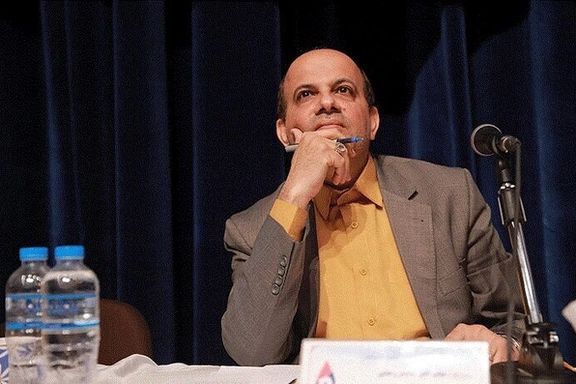
The National Iranian Oil Company (NIOC) has announced plans to boost its oil production by an additional 250,000 barrels per day (bpd) by the end of the summer.

The National Iranian Oil Company (NIOC) has announced plans to boost its oil production by an additional 250,000 barrels per day (bpd) by the end of the summer.
According to a report by the semi-official Tasnim news agency, this move is expected to elevate Iran's total daily oil production to 3.5 million bpd. NIOC Managing Director Mohsen Khojasteh-Mehr was quoted by Tasnim as stating, "Iran's oil production will reach 3.5 million bpd at the end of summer."
The backdrop of this production surge lies in the aftermath of the 2015 Joint Comprehensive Plan of Action (JCPOA) agreement, which saw the lifting of international sanctions on Iran and a subsequent increase in revenues. During this period, Iran's oil revenues temporarily soared to $66 billion in 2017. However, this upward trajectory was disrupted after the United States withdrew from the JCPOA in May 2018, which led to renewed sanctions that intensified a year later. As a result, Iran's oil exports faced a significant decline, falling to between $15 - $20 billion by 2020. The tide began to turn towards the close of that year after the election of US President Joe Biden, who expressed intentions to reinstate the JCPOA. China, in response, embarked on a trajectory of heightened oil imports from Iran.
However, the recent influx of revenue from increased oil exports has sparked questions among economists and business analysts in Iran and around the world. Notably, Iran's national currency, since the beginning of the year, has lost more than 25 percent of its value against the dollar on the open market. Critics contend that the substantial oil revenues have not yielded the anticipated positive impact on the economy, due to government tax policies and other factors.
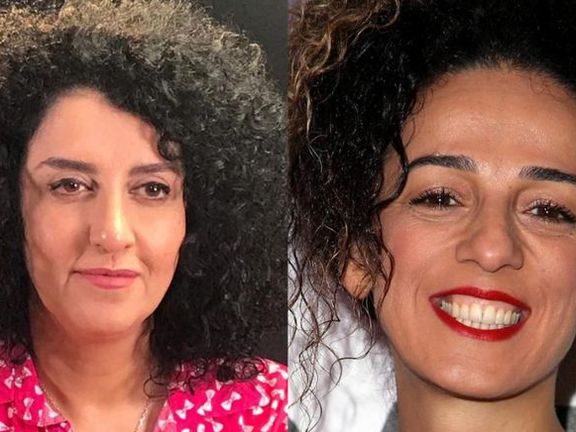
Three Iranians have been nominated for the 2023 Nobel Peace Prize, according to unofficial sources and those who nominated them.
Masih Alinejad, a prominent Iranian activist, has been nominated for her steadfast commitment "to fighting for freedom of expression, democracy, and women's rights in Iran”. Alinejad garnered global attention when Iran's Intelligence Ministry's attempted abduction of an Iranian American journalist was exposed by US authorities in July 2021.
Narges Mohammadi, an imprisoned Iranian human rights activist, has also secured a nomination for her pivotal role in representing the aspirations of countless courageous Iranians. She is recognized as representing hundreds of thousands of brave Iranians, women and men, who are willing to risk everything to bring peace and freedom back in Iran.
Jafar Panahi, a distinguished Iranian film director and screenwriter associated with the Iranian New Wave film movement, has been nominated for his efforts to convey the societal challenges that affect the lives of ordinary Iranians in their everyday lives.
The international peace prize, established in accordance with Alfred Nobel's will, is scheduled to be revealed in Oslo, Norway, in October 2023, with the award ceremony set for December 10.
The Norwegian Nobel Committee disclosed that they received a total of 305 official candidates for the 2023 Nobel Peace Prize, comprising 212 individuals and 93 organizations. While nominations remain confidential, certain Norwegian parliamentarians and academics are permitted to publicly announce their preferred candidates to generate awareness for both the nominee and the nominator.
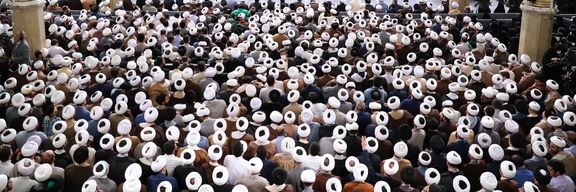
A moderate-conservative news website in Tehran has expressed concern over the absence of Iran's political elite in the upcoming March 2024 parliamentary elections.
The traditional political elite of the Islamic Republic expecting an engineered vote next year are not inclined to get involved. The hardliners have an open field to perpetuate and even strengthen their monopoly over power.
Khabar Online website’s columnist Rasoul Salimi said that the absence of the elite not only from electoral politics but also in popular protests since 2018 has brought the government face to face with the masses. The political elite have evacuated the buffer zone between the people and the government.
Feeling side-lined as their warnings about looming crises and economic and political upheavals have been ignored by populist governments, the elite has withdrawn, the article said.
The result is that the masses move toward “essential social changes,” the author said carefully weighing his choice of words, avoiding phrases such as unrest and upheaval. The only thing governments have done was delaying social change by engineering political developments and using propaganda to make an impact on the public opinion, he said.
The absence of the elite, he argued, is likely to adversely affect the political system's legitimacy and people's trust in the government as the parliamentary elections approach.
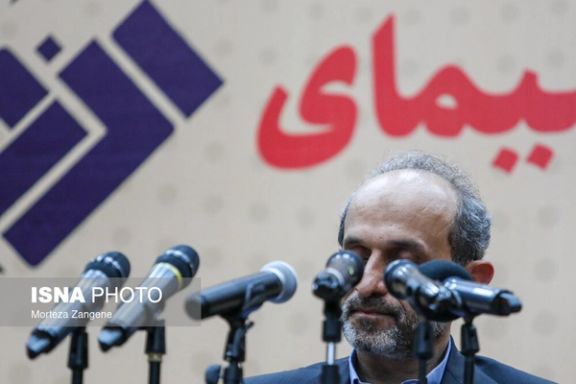
In the meantime, the head of the state television Payman Jebelli told Entekhab News on Sunday: "The result of the elections has no significance for us. The most important thing for us is to ensure a high turnout in the election by encouraging maximum participation." For months many analysts and former officials have been criticizing the state TV for its deep bias in favor of hardliners in power.
Jebelli said that based on the guidelines offered by Supreme Leader Ali Khamenei, the state television's main concerns will be "participation, competition, security and a healthy election." He added that the state television will play a direct role in securing a high voter turnout and competitiveness.
Many Iranian politicians have expressed concern in recent weeks that the government's unilateral and discriminatory approach to elections, and the disqualification of moderate and reformist candidates will lead to one of the lowest turnouts in the Islamic Republic's history.
During the past week, the Interior Ministry has been sending text messages to millions of Iranians calling on them to nominate themselves as candidates for parliament.
Political activist Khalilollah Balouchi wrote on Twitter on Saturday: "In the past, if there were not so many voters, at least there were enough candidates. Now, the government is calling on everyone to become a candidate."
Conservative politician and Expediency Council member Mohammad Javad Bahonar told Entekhab News on Sunday that in the March elections, "the turnout is more important than the election itself."
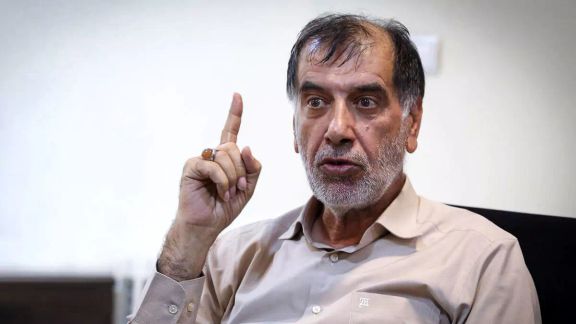
He said that despite calls for a high turnout, "Some politicians are looking for their own victory in a low-turnout election without officially saying so." This, Bahonar said, is against what Khamenei has called for.
Hardliners, particularly the ultraconservative Paydari Party, who advocate purification to limit the election to their likeminded comrades, see everyone else including experienced conservative politicians such as himself as "outsiders," Bahonar complained.
The "outsiders" and political "elites" are jargons used by the officially tolerated opposition in the Islamic Republic to refer to individuals in the conservative camp such as Bahonar, others in the centrist and moderate camp such as the members of Executives of Construction Party and former President Hassan Rouhani's aides, as well as reformists such as those like jailed Mostafa Tajzadeh who believe in minimal changes within the current structure of the Islamic Republic.
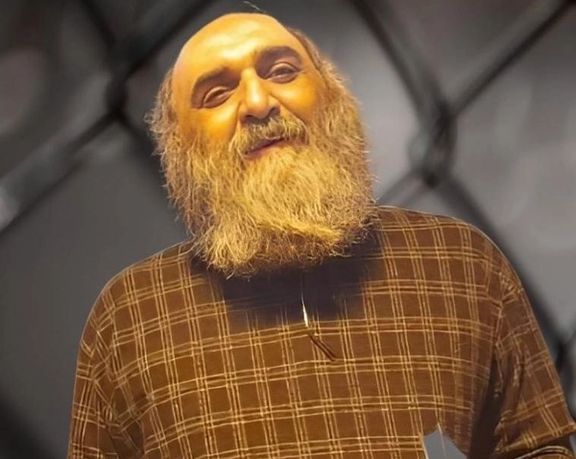
A unified statement from activists, writers, and artists has called for the release of imprisoned poet Habib Mousavi Bibalani and an end to repression.
Mousavi, a notable opposition poet, was apprehended on Monday and has since been detained at Amirabad prison in Gorgan. The charges against him, such as "propaganda against the system" and "disturbing public opinion," have triggered widespread concern among his supporters and peers.
The statement, compiled by over 260 activists, states that rising repression and increased incarcerations signals fatal cracks in the regime. They slammed the incarceration of Mousavi and other activists and said such acts of repression are a sign of the regime losing hold of its oppressive power.
The statement said that writers have historically been primary targets during successive waves of repression and indicated that this is a sign of decreasing grip of authority. “When a political order violates every aspect of the lives of those who produce and distribute ideas and speech... it is an attempt to shut the very last remaining windows of political presence. One can only conclude that this political order itself does not have much hope for retrieving its already lost legitimacy,” the statement reads. It also highlights the eerie resemblance of the regime’s actions in 2023 to the totalitarian regimes of the early 20th century.
Amidst mounting worries about Mousavi's health, the signatories of the statement also draw attention to his numerous medical conditions, including heart disease, lumbar disc issues.
Furthermore, the collective of activists highlighted hundreds of disturbing cases of repression against writers during the Mahsa Uprising, including instances of violence, staged suicides, unlawful detentions, abductions, exiles, psychological and physical torture, intrusive home searches, and intimidation tactics.
Statistics from PEN America's latest Freedom To Write Index reveal a distressing surge in the incarceration of writers in Iran during 2022, compared to the preceding year, reflecting the government's heightened suppression of dissent.
The intensified crackdown on anti-government protests following the tragic death of Mahsa Amini in police custody has led to a deliberate focus on writers, artists, cultural figures, celebrities, and athletes who challenge the status quo.
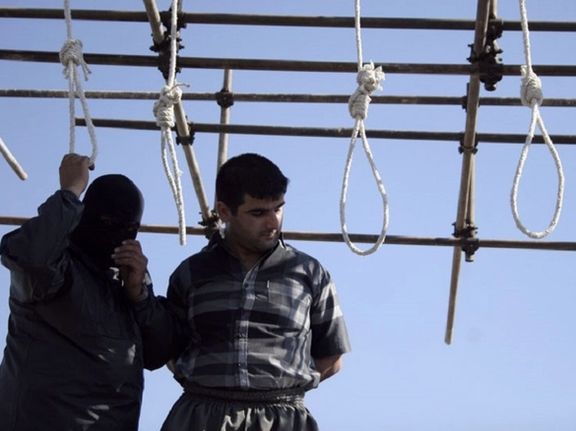
Five men from Marand, in north-western Iran, were executed on Wednesday morning after being convicted of rape.
The defendants were arrested and imprisoned in early June, following their alleged involvement in the gang rape of a woman.
The ISNA news agency reported that Yuosef Ziamehr, Marand's general and revolutionary prosecutor, revealed the details of the case.
“On May 21, 2022, a woman approached the Marand city prosecutor's office and claimed to have been kidnapped by five unknown individuals and forcibly taken to the mountains around the city, where she was subjected to rape by all five perpetrators.”
The law enforcement agents identified and arrested the five defendants within four days of the crime and their subsequent trial culminated in a death sentence, which was upheld by the Supreme Court. The identities of the executed men remain undisclosed.
The timing of these executions coincides with a report from the United Nations High Commissioner for Human Rights, which sheds light on the alarming trajectory of capital punishment in Iran. The report highlights a steep rise in executions, with 582 individuals put to death in 2022, marking an increase of 75% compared to the previous year's figure of 333. Of particular concern is the fact that the 2022 executions included three juveniles.
In 2023, numbers appear to correlate with 2022 with 94 executions recorded in January and February alone.
The report also brings attention to the execution of individuals accused of participating in nationwide protests including those of Mohsen Shekari, Mohammad Mahdi Karami, Mohammad Hosseini, and Majidreza Rahnavard.
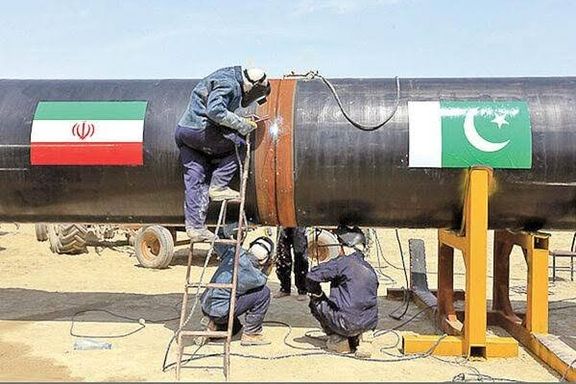
Pakistan has put a temporary hold on the ambitious multi-billion-dollar gas pipeline project to import energy from Iran.
According to media reports, the decision appears to be influenced by pressure from the United States, which has imposed sanctions against Iran due to concerns over its nuclear program.
Initially envisioned as a joint endeavor between India, Pakistan and Iran, the gas pipeline project later evolved into a bilateral initiative between Pakistan and Iran after India's withdrawal. However, the implementation of the project has faced setbacks due to the stringent sanctions imposed by the US on Iran.
Citing external factors beyond Islamabad's control, Pakistan issued a notice of 'Force Majeure and Excusing Event' to Iran, thereby suspending its contractual obligations related to the Iran-Pakistan (IP) gas pipeline project. The Dawn newspaper reported that Pakistan conveyed its inability to advance the project as long as US sanctions against Iran remained in effect, or until a signal was received from Washington permitting the project's resumption.
Musadik Malik. Pakistan’s Minister of State for Petroleum, stated, "Pakistan has issued a Force Majeure and Excusing Event notice to Iran under the Gas Sales and Purchase Agreement (GSPA), which resultantly suspends Pakistan's obligations under the GSPA."
Meanwhile, last week during a visit to Pakistan, Iranian Foreign Minister Hossein Amir Abdollahian stressed the project's importance in focusing on regional connectivity, energy cooperation, and enhancing economic and investment partnerships between both countries.
While Tehran continues with the completion of its 1,150-kilometer pipeline segment, Pakistan's section has encountered several setbacks. The project, initiated in 2013 with a USD 7.5 billion estimate, faced a delay as international sanctions hindered Pakistan's commitment to finish by January 2015.